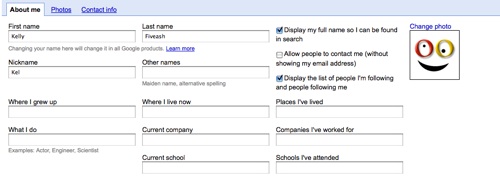Original URL: https://www.theregister.com/2010/02/11/google_buzz_privacy/
Google Buzz leaves privacy concerns ringing in ears
Gmail sprouts Web 2.0 legs
Posted in Software, 11th February 2010 14:03 GMT
Comment What’s that really annoying humming sound bothering your lugholes? Oh yes, Google Buzz. Bah.
And so it has come to pass - Mountain View’s sinister personal data grab has finally crept into the most sacred of all online communication tools. Gmail now has the ability to do social networking.
Google wants to out-Facebook Facebook, out-Twitter Twitter and out-Internet Explorer Internet Explorer and so and so and so, infinitum. But the ad broker’s relentless efforts to carpetbomb the entire interwebulator with its brand is becoming at best tiresome and at worst downright creepy.
The company isn’t content to sit back and watch the likes of Facebook and Twitter offer their own shoddy Web 2.0 privacy policies; now Google is in on that social networking game too.
The problem with Buzz is that Google didn’t offer its 176 million Gmail users an opportunity to opt in to the service that mines ever more information stored in the web kingpin's datacentres.
Instead, Mountain View simply slotted Buzz into all its Gmail accounts. That’s a somewhat unusual move for a company that prides itself on deeply testing a product in beta via Google Labs.
Recently the firm appears to have backed away from that model of delivery, wherein users were able to choose what “hot new product” of Google’s they might want to tinker with.
Google’s new stealth mode response is a dangerous strategy, as it assumes that its users will happily take on Web 2.0 clutter in their inboxes. In reality, the backlash has already begun, with many complaining that an online email service should remain separate from social networking.
Buzz also demands a public profile to be created before the account can be fully activated within Gmail.
“At a minimum, you only need to include your first and last name to use Buzz. It's up to you whether you'd like to include more details,” said Google.
“Note that if you decide to remove lists of the people you are following and the people following you from your profile, your name (and photo if you include it) may still appear on the profiles of the people you are following and who are following you.”
Scarily for those Gmailers who wish to keep their email addresses and contact lists behind private doors and away from the prying eyes of search engines, Buzz does its best to reverse that by very publicly revealing those details as soon as a user accepts the invite to try out the new service.
Google also adopts the simples approach by pointing out “no setup [is] needed”.
So what happens if you hook up to Buzz’s beating black heart? For a start, it makes your profile public by default. That means anyone can have a gander at your profile, view your personal contact list and quickly follow whomever they please.
To switch those functions off, users are required to edit their profile and uncheck the “Display my full name so I can be found in search” and “Display the list of people I’m following and people following me” boxes.
Google’s failure to set those features as an opt-out by default is worrying to say the least, especially from a company that continues to insist it “does no evil”.
Essentially, Mountain View has grabbed elements of Twitter and Facebook in carving out its very own Web2.0rhea vision. Sadly, rather than learn from their mistakes, the company has potted Buzz with gaping privacy holes that do little to reassure Gmail users that their inbox won’t be sabotaged by spammers.
Worse still, Google isn’t even ashamed to admit that, y’know, using Buzz via Gmail exposes details you might have once wanted to keep private to you and your list of contacts.
“To make it easier for people to find your profile, you can customise your URL with your Google email username," it said. "(Note this can make your Google email address publicly viewable.)
“This unique name will also be used in other links to your content on Google. To help others discover your profile, in some Google services contacts who know your email address will see a link to your profile.”
Google confirmed at the launch of Buzz earlier this week that it would integrate the naked and free data with Wave, its effort at realtime communication. It's not clear exactly how Mountain View will stitch the two together, however.
Buzz is ultimately Google's latest attempt to shepherd more people into Gmail. What's more worrying long term is what such a move means for the company's online email service. By sprouting Web 2.0 legs Gmail might just have lost some serious credibility. ®
